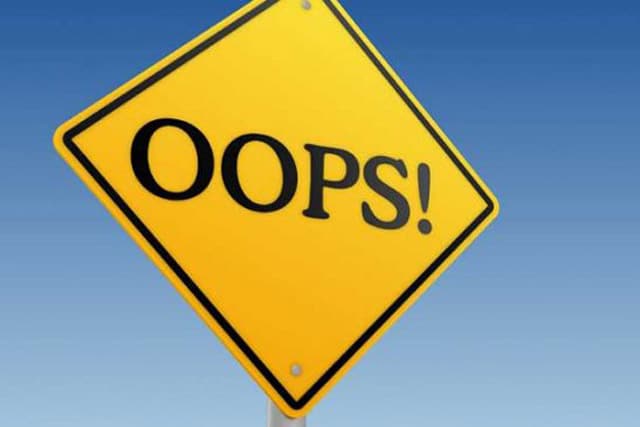Why Franchises Fail in Some Franchising Systems
Business failure is not uncommon, even in franchising. In larger franchise systems, the loss of a single location may go almost unnoticed by the franchisor. But in smaller systems, the loss of a single franchisee can be devastating. And of course, for the individual franchisee, the failure of their franchise means more than just the loss of their investment – it may also mean the loss of their livelihood.
By Michael Seid, Managing Director, MSA Worldwide
What is Franchise Failure?
There are no reliable statistics on franchisee failure; most commonly cited studies about the success rate in franchising are both outdated and inaccurate. Most of those studies included only franchisors then in existence; franchisees of failed systems were never even counted.
To compound the problem, there is no universally accepted definition of franchise failure. Some franchisees fail outright; some retire or find a new career; some may sell a failing franchise to a new owner without the location ever closing its doors.
Regardless of the cause, the loss of any single franchisee-owned location should be viewed with concern by the franchisor, and should be analyzed to discover the reasons for the failure and take the necessary actions to improve the franchise system’s performance.
Who is Responsible for Franchise Failure?
When most franchisee-owned units are doing well, the failure of any one franchisee is likely due to management inadequacies at the unit level. Improper management and operations is the leading cause of business failure, and in franchising – where the franchisor does not have control of the day-to-day management of the franchisee’s business – there is often little the franchisor can do to prevent franchisee failure.
When you examine the root cause of many franchise failures, the seeds of their destruction may sometimes be found in the decisions made before the location even opened. Poor site selection, inadequate working capital and financial resources, and excessive debt service obligations are just a few reasons for subsequent unit failure.
But you can’t ignore that the franchisor recruited and approved the franchisee into the system. The franchisor trained the franchisee, approved their location, designed and updated the franchise system, provided the franchisee with ongoing support, determined the products and services the franchisee would sell, often specified the supply chain, and created the marketing programs used by the franchisee.
The franchisor does not run the business for the franchisee; that is the franchisee’s sole responsibility. But understanding why a unit has failed is the responsibility of the franchisor. If a franchisor does nothing else, it should use a franchisee’s failure as an opportunity to improve the franchise system and look for ways to reduce the chance that it will happen in the future.
Analyzing a Franchisee Failure
- Look at the franchisee’s recruitment file and study the application. Would the prospective franchisee meet your current criteria for prospective franchisees? Did you sell them a franchise, or did you screen and select them as a franchisee?
- If you have multiple franchise salespeople, use a franchise brokerage, or use an area representative structure, is there any correlation between franchisee failures and who brought the franchisee into the system? Are you tracking this information? Your goal is a sustainable franchise system; if one of your recruitment personnel has a high candidate failure rate, you need to understand why.
- Take a look at the franchisee’s finances. Were they allowed to take on too much debt, given the anticipated cash flow? Was your information on anticipated unit cash flow accurate at the time? Is your information better today?
- Review the franchisee’s performance and your communications with them. Take a look at field reports, action plans, letters, e-mails and phone logs, and understand the issues that were in play while the franchisee was in operation. How did your system deal with each issue? Did you do enough, and were other alternative approaches available? Are your field staff trained and experienced in the business they are providing advice on? Are they visiting or working with franchisees on an appropriate schedule, or are they visiting franchisees based upon some calendar-driven number of visits?
- Talk to your management team and get their perspective on the franchisee. What were the issues facing the franchisee, and did they deal with those issues and the franchisee appropriately? Interview the headquarters and field staff who worked with the franchisee. They likely have the best understanding of what took place, and may hold some of the solution.
- Conduct an exit interview with the franchisee – after first speaking with your lawyer, as some lawyers have concerns about exit interviews. But remember that while the role of your lawyer is to provide advice to help you reduce legal risks, it is your role to manage your franchise system. While exit interviews may not be the most pleasant conversations, and might even have some legal risk on occasion, exiting franchisees may have a unique perspective that you should hear. A well-structured exit interview is worth the effort.
- Discuss the failure with other franchisees knowledgeable about the franchisee’s business and again, after speaking to your legal counsel, consider using your franchisee advisory counsel as part of your forensic analysis.
Preventing Future Unit Failures
Once you have an gained the information needed to understand why the franchisee failed, either set aside time during your next management meeting or schedule a meeting to debrief your team on what you have learned. Discuss ways to improve system processes that could have prevented or reduced the chance of the franchisee’s failure.
It is essential to reach honest conclusions on why the franchisee failed. Take ownership of the problem if that is where your research has taken you, and learn. Treat each franchisee closure as important, and take those steps necessary to deal with any system shortcomings you uncover. To achieve a sustainable franchise system, the franchisor must take timely actions to prevent unit failures.
Regularly monitor your franchisees’ bottom-line performance. Are your franchisees achieving a return on their investment with sufficient cash flow to service their debt? Are your franchisees earning sufficient revenue to earn a living and take care of their families? Understanding whether your system is meeting its brand standards for consumers is essential to the health of a franchise system; so is determining if it is meeting its brand promise to franchisees.
Franchisee failure rarely takes place immediately; regular monitoring of unit performance and an accurate understanding of why units fail give you the opportunity – and the knowledge – needed to make adjustments to your system.
Do you have questions about improving your franchise system?
MSA Worldwide provides expert guidance on building a successful and sustainable franchise business. Contact us today for a complimentary consultation.







